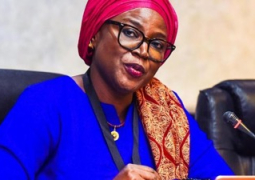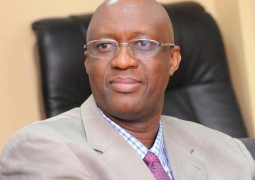
Governor Saidy explained that only one office in government can open an account at CBG – the Accountant General. “They write to the governor and request for accounts to be opened, once the request is made, CBG verifies documentation, formally acknowledges the opening, and then asks for signatures. An account only becomes functional when all signatories are submitted, and typically no fewer than two signatories can operate it. But, he added, the Accountant General may designate up to six.
When asked about controls and reconciliation, the Governor stressed confidentiality above all. “We don’t disclose account details to anybody. Only people who are signatories to the account have access, no minister not even the minister of Finance can give instructions to the Central Bank. “Only the Accountant General can,” he repeated.
Counsel pressed him on past irregularities flagged by the Janneh Commission, noting that the Commission had recommended tighter controls after identifying anomalies.
Saidy maintained that while he was not Governor at the time, he was confident the Bank complied with the law, and that under his leadership strict rules are followed to the last letter of the law.
Attention then shifted to the actual recovery accounts, the one in U.S. dollars and one in dalasis. The Governor confirmed they are the only two CBG accounts created specifically for Janneh Commission recoveries.
He disclosed that the U.S. dollar account was opened on 3 October 2017. Its first deposit came 17 days later with $258,506.25. The account ultimately received a total of $2,105,547.57. It also paid out the exact same amount, leaving a closing balance of $0 as of 17 September 2025. Its signatories included senior officials such as Ambassador Momodou Lamin Bah, Accountant General Agnes Macaulay and several deputies.
Withdrawals from the account, Saidy said, are always based on written instructions from the Accountant General. In some cases, the Accountant General uses an electronic transfer window that allows her to move funds directly into the Consolidated Revenue Fund or other authorised government accounts. The system alerts CBG of all transactions and can be shut by the Bank if resources are insufficient. Crucially, this account cannot be overdrawn.
He added that court documents showed transfers to the CRC, the Janneh Commission, MoFEA and other government entities, a brief dalasi entry appearing in the U.S. account was described as a reversal of an accounting error.
He stated the dalasi account opened on 8 September 2017. “The first deposit, D3,025,187.13, came from the former President’s Kabiko Limited account at GTBank, transferred to the CBG account based on written instructions from the Accountant General.”
Counsel sought clarity on the numerous individual deposits reflected in the statement. Saidy explained that every cash deposit is preceded by official notification from the Accountant General, after which individuals fill pay-in slips and make their deposits. Other deposits arrive from commercial banks, again only upon the Accountant General’s instruction.
Throughout the testimony, the Governor maintained a consistent theme that access, deposits, withdrawals and all forms of movement in these recovery accounts are fully controlled by the Accountant General, with the Central Bank acting only on properly authorised directives.
As he put it “nobody can give directives to us in the Central Bank with regard to controls over any account except the Accountant General.”
Read Other Articles In Headlines

APP-Sobeya leader blames govt for not doing enough to stop irregular migration
Jan 7, 2026, 12:08 PM




